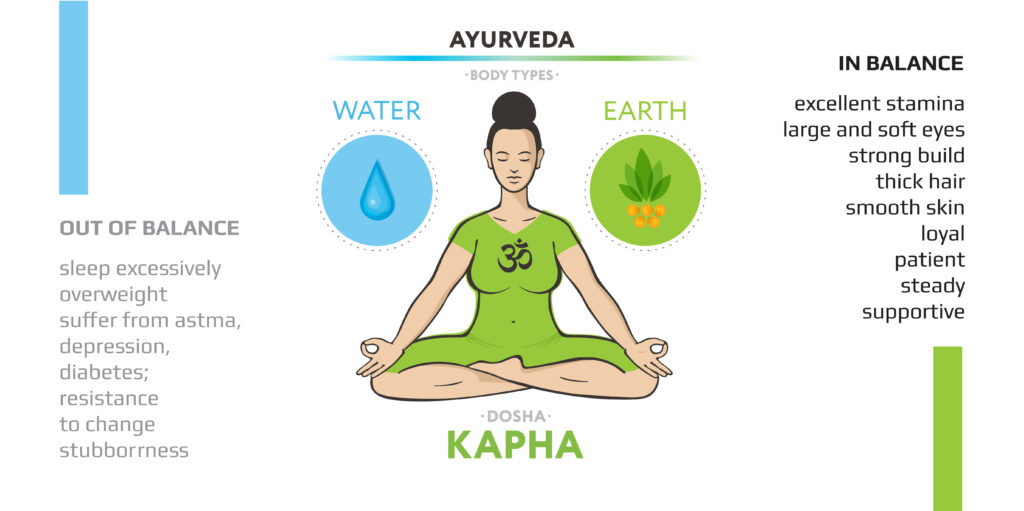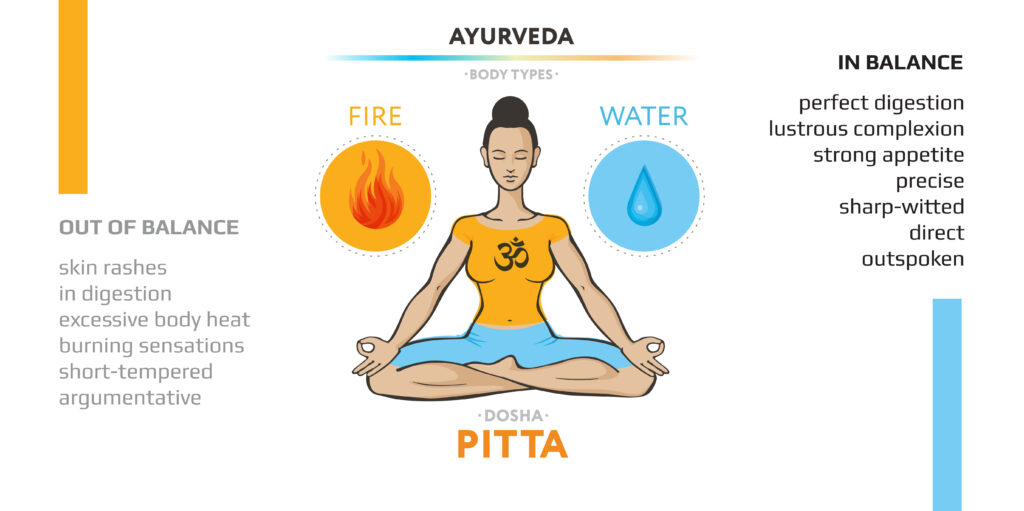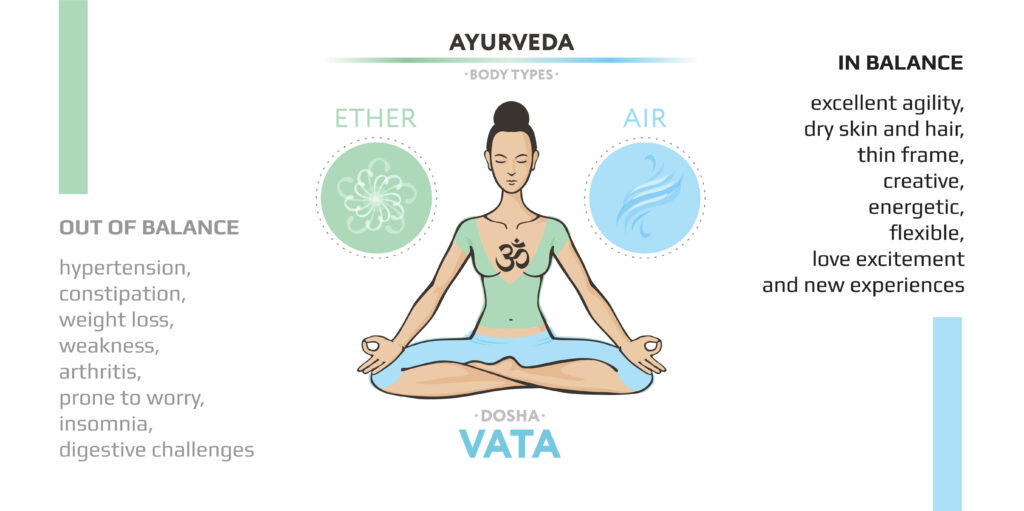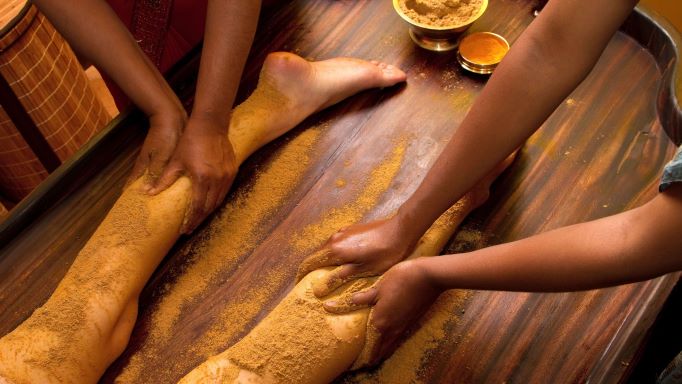At a size of $9.58 billion, the Indian wellness industry is always demanding better healthcare infrastructure and novel medical techniques to meet its health needs. As Ayurveda originates from India, it has been the perfect system of preventive medicine for this market. Its impact is huge in India. Over 77% of Indian households trust and use Ayurvedic products to treat ailments and maintain the family’s health. Not only is it effective in curing ailments but also promotes a healthier lifestyle, leaving patients feeling healthier than before.

Due to rising demand, the Government of India, through the Ministry of AYUSH (Ayurveda, Yoga & Naturopathy, Unani, Siddha, and Homeopathy), has been promoting research, education, and development of traditional medicine. As Ayurvedic techniques get more refined through novel research, they get better at providing relief to patients. Ayurveda aims to promote holistic health to the population and prevent the appearance of ailments in the first place rather than having to treat them as the patient suffers. Here, we explore how Ayurveda is preventive medicine that can help prevent illness.
What is Preventative Medicine?
Preventive medicine is the practice of being proactive with healthcare to maintain the overall health of a patient to prevent illness or disability and allow them to lead a healthy lifestyle. It is practiced by government agencies, physicians, and individuals all over the world. Vaccinations are a typical example of preventive medicine used in the west.
Ayurveda on the other hand finds its basis in being a preventive system of medicine. Ayurveda believes in holistic health. It helps patients find a balance in their body, mind, and spirit to help them lead a healthy lifestyle. In this manner, when they are balanced, diseases are unable to take root in their body. This helps prevent disease and suffering.

Many may find this notion challenging. You may wonder how to maintain a healthy life every day. After all, life today can be fast-paced and stressful, leading to many unhealthy habits. Moreover, many of us have a hard time abstaining from unhealthy habits. Thankfully, Ayurveda does not ask you to give up on the things you enjoy. Instead, it promotes balanced living. You can use a multitude of Ayurvedic practices including medicine, diets, exercise, and meditation to balance out the imbalances caused by stress, poor diets, and other habits that negatively influence your health.
Importance and Benefits of Preventative Medicine
Preventive medicine is vital for an individual’s health and well-being. As we age, the toll our lifestyle takes on our health starts to compound. Yet, we all want to be healthy and happy throughout our life, even in our old age. Preventive medicine plays a crucial role in this. By helping you lead a healthy lifestyle and follow better practices, preventive medicine can help you maintain good health every day.
The effect of preventive medicine, used regularly, will start to show as you continue to age. While many suffer the effects of an unhealthy lifestyle, including disease, disability, or even death, people who make use of preventive medical knowledge continue to retain their health long after their peers.
What’s more, preventive medicine also helps our society. Several nations around the world have a rapidly aging population. Projections show that 37.6% of Germany’s population will be over 60 years old by 2050. This means that in a few decades most countries will contain a large number of old or aging individuals who are more susceptible to diseases. This makes the prevention of disease spread a priority for maintaining societal health. Using preventive medicines will ensure a larger number of healthy individuals who will be responsible for barring the rampant spread of disease.

Preventive medicine can also be extremely cost-effective. Every year, the US spends around $12,530 per person on healthcare. Preventive medicines that prevent or delay the onset of disease can help individuals stay safe from the crippling healthcare costs of curing diseases. It also safeguards you from the suffering of having to battle and recover from a debilitating illness.
How Ayurveda can Prevent Illness
According to Ayurveda, diseases are caused due to imbalances in one’s Doshas. Doshas are mind-body elements that determine a person’s unique bodily constitution. The three Doshas are Vata, Pitta, and Kapha. Our lifestyles affect the balance of doshas in our bodies. Stresses and poor lifestyles cause an imbalance of these Doshas leading to illness and suffering.



Ayurveda aims at bringing balance to one’s Doshas. ayurvedic practitioners study the individual to determine the constitution of the Doshas in their body. They then create a plan to balance the patient’s doshas. This can include techniques such as dietary changes, naturopathic medicine, yogic exercises, and detoxification treatments. Balancing the Doshas helps treat conditions the patient has been suffering from and also helps prevent the recurrence of these conditions and the appearance of other ailments.
Once the patient’s doshas are balanced, the ayurvedic practitioner can focus on creating a plan for the patient to follow which will ensure that they remain focused on leading a healthy lifestyle and maintaining holistic health.
Maintaining Holistic Health with Ayurveda
Ayurveda preaches holistic health. It uses practices like a healthy diet, naturopathic medicine, yoga, and meditation to ensure the health of the body, mind, and spirit. Ayurveda believes that health is indicated not only by a healthy body. The mind and soul of a patient are vital to maintaining holistic health.
This can also be seen in ayurvedic medicines, which are usually herbal or naturopathic. An important feature of these medicines is that they do not cause side effects. As ayurvedic medicines don’t focus on treating symptoms of disease but on balancing the doshas. It is difficult for any side effects to arise once the doshas are balanced.
Yoga and Meditation are also important parts of Ayurveda as they keep the body healthy, the mind sharp and the spirit revitalized. It is important to integrate yoga and meditation into ayurvedic treatments as they form the spiritual and psychological basis for the treatments. While Ayurveda helps maintain balanced health, Yoga and Meditation align the mind and spirit with the process of healing.

It is clear that to remain healthy using Ayurveda, it is vital to formulate a unique health plan using a variety of ayurvedic practices and techniques. This will help you achieve and maintain holistic health. However, as with any form of medicine, it can be dangerous to self-prescribe these treatments. Ayurvedic medicine can only help prevent illness if treatment is guided by experienced, knowledgeable practitioners. Alveda helps bring you, qualified ayurvedic practitioners, from various areas of expertise. Sign up for a consultation today, to create your unique ayurvedic health plan. Soon, you too can use preventative medicine for your holistic health!







